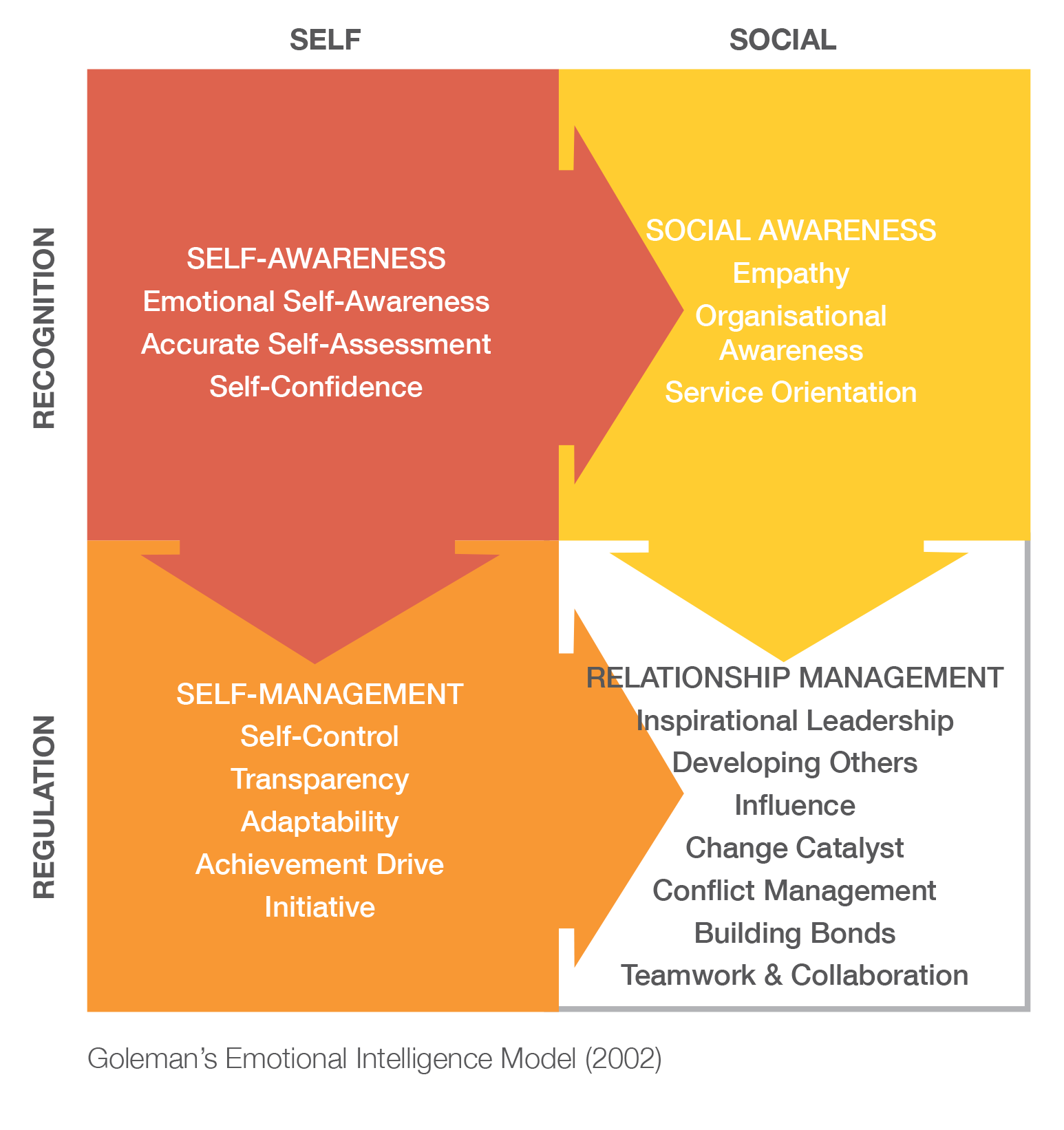Emotional Intelligence
What is Emotional Intelligence?
Emotional intelligence is the ability to recognise, understand and manage emotions in ourselves and others.
The capability of people to perform work falls into three areas:
- Technical skills - technical expertise (e.g. accountancy skills)
- Intellectual capability - commonly known as IQ, or cognitive abilities
- Emotional capability - often referred to as emotional intelligence or EI
Emotional Intelligence contributes 80 to 90% of the competencies that distinguish outstanding leaders from average leaders
IQ versus EI
In professional and technical fields the typical entry-level threshold IQ is 110 to 120. Since everyone is in the top 10% or so of intelligence, IQ itself offers relatively little competitive advantage.
EI on the other hand can be learned at any age. Growing your competency in EI takes perseverance in critical self-evaluation, commitment to improvement and behavioural practice.
The Four Clusters of Emotional Intelligence

Goleman's Emotional Intelligence Model (2002)
1. Self-Awareness
The core of Emotional Intelligence is self-awareness. The starting point and key is the ability to be critically self-reflective.
Emotional Self-Awareness: Read and understand your emotions and recognise their impact on work performance and relationships
Accurate Self-Assessment: Give a realistic evaluation of your strengths and limitations
Self-Confidence: Have a positive and strong sense of self-worth
2. Self-Management
Self-management is comprised of five competencies:
Self-Control: Keeping disruptive emotions and impulses under control
Transparency: Maintaining standards of honesty and integrity
Adaptability: Flexibility in adapting to changing situations and overcoming obstacles
Achievement Orientation: The guiding drive to meet an internal standard of excellence
Initiative: The readiness to seize opportunities and act
3. Social Awareness
Social Awareness is comprised of three competencies:
Empathy: Understanding others and taking an active interest in their concerns
Organisational Awareness: The ability to read the currents of organisational life, build decision networks and navigate politics
Service Orientation: Recognising and meeting customers needs
4. Relationship Management
The Social cluster of Relationship Management is comprised of seven competencies:
Visionary Leadership: Inspiring and guiding groups and individuals
Developing Others: Strengthening and supporting the abilities of others through feedback and guidance
Influence: The ability to exercise a wide range of persuasive strategies with integrity
Change Catalyst: The proficiency in initiating new ideas and leading people in a new direction
Conflict Management: Resolving disagreements and collaboratively developing resolutions
Building Bonds: Building and maintaining relationships with others
Teamwork and Collaboration: The promotion of cooperation and building of teams
Growing Emotional Intelligence
Growing your EI competencies requires transformational learning, which comes from using critical self-reflection.
The Three (3) Why Test
Effective critical self-reflection requires you to question yourself and your assumptions on an ongoing basis. Ask "Why" down three levels from the item you are analysing.
Example:
I have been asked to present a workshop to one hundred people on a subject I know very well, and I have said no.
- Why did I say no? Because I would not feel comfortable doing it.
- Why do you feel uncomfortable about doing it? Because I might look incompetent.
- Why do you feel you would look incompetent? Because people in the audience may know more than I do.
The answer to this question is based on assumptions, and we need to challenge these assumptions to check their validity.
Research supports that competence in Emotional Intelligence accounts for over 90% of the difference between ineffective leaders and effective leadership performance
The Emotionally Intelligent Organisation
An organisation with a high number of emotionally intelligent leaders, managers and critical professionals stands to be at the forefront of organisational practice and performance, and is more likely to be an employer of choice.
Effective leadership improves business performance and provides organisations with a competitive advantage.
